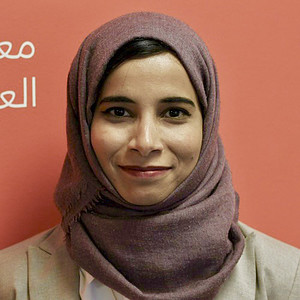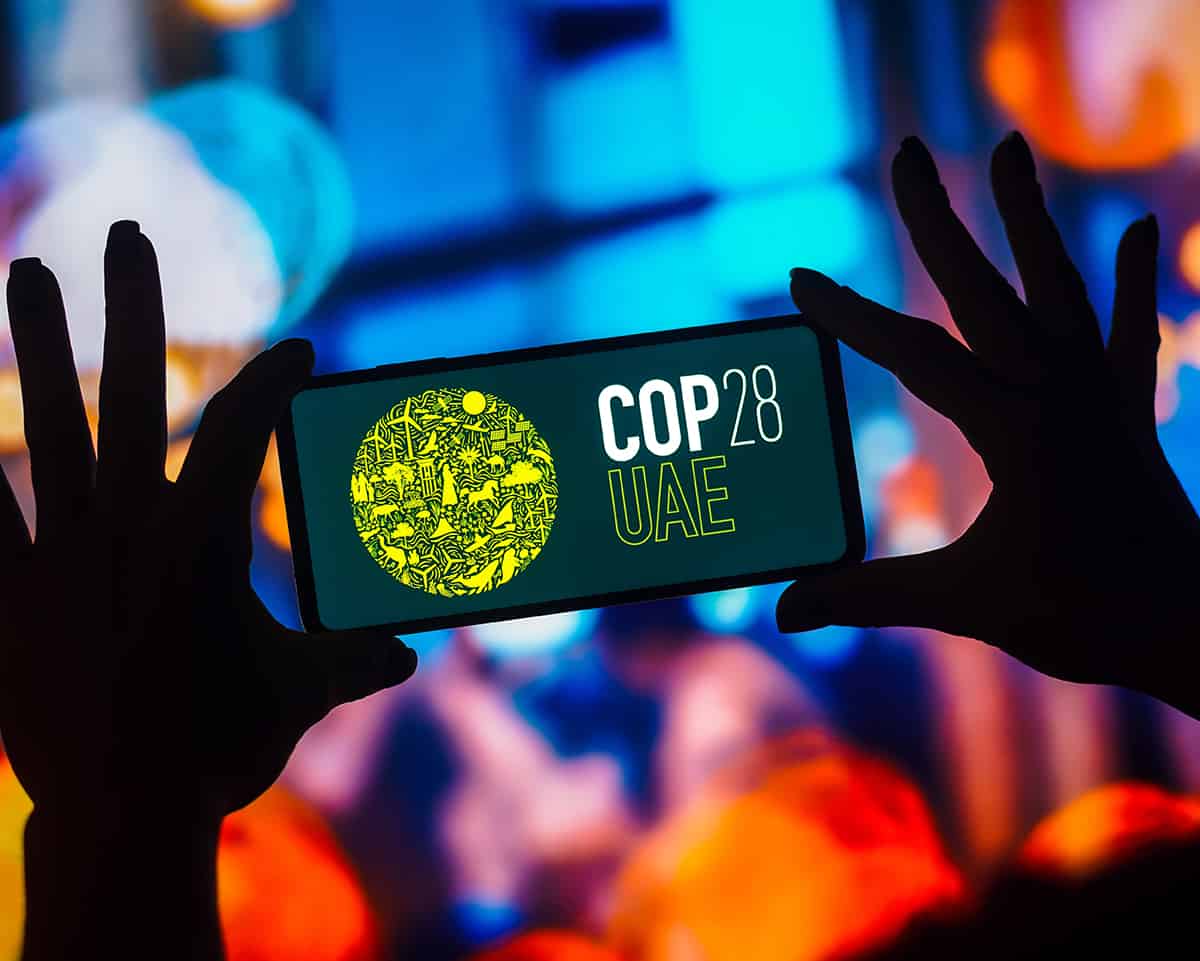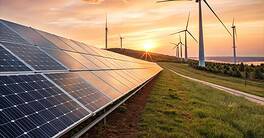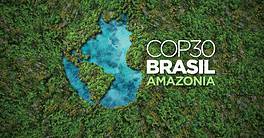COP28 will allow the UAE to leave its mark on global climate change negotiations.
The 2023 United Nations Climate Change Conference, or 28th Conference of the Parties (COP28), will be the third COP in the Middle East after Egypt hosted it last year and Qatar in 2012. For the United Arab Emirates (UAE), this year’s event, running Nov. 30-Dec. 12, is a big deal. Dubai expects 70,000 visitors from almost 200 countries, including government officials, diplomats, financial institutions, scientists, corporates and other experts.
The Middle East is on the front line of global warming. Countries like Bahrain, Qatar and Kuwait have some of the highest temperatures in the world and could soon become uninhabitable. In September, Libya lost over 11,000 people to a devastating flood, while most countries grapple with wildfires, droughts and water scarcity. In this part of the world, climate change is an everyday concern and an immediate threat to the lives of hundreds of millions.
However, the Middle East is not at the forefront of environmental solutions and green investments. For some countries like Yemen, Syria, Sudan, Lebanon, Libya and Iraq—and to some extent, Egypt and Tunisia—it just isn’t a priority. They have enough on their plates with war, economic crisis, or both. With more political stability and financial power, Gulf monarchies have taken the regional lead on the climate agenda. All Gulf Cooperation Council (GCC) states but Qatar have committed to net-zero targets by 2050 or 2060 and invested heavily in renewable energies at home and worldwide. Interestingly, it mostly happened independent of global donors. The authorities mainly fund projects themselves thanks to hydrocarbon revenue, giving them more flexibility to do things their way rather than apply Western-made recipes.

In 2017, the UAE was the first Arab country to announce a national climate strategy. The Emiratis now want the world to remember COP28 as a conference that took a unique, bold and pragmatic approach to climate change. Sultan Ahmed Al Jaber, president-designate of the event and the UAE’s special envoy for climate change, made it clear during the opening session of Middle East and North Africa (MENA) Climate Week, a UN-organized conference in Riyadh in early October: “We must separate facts from fiction, reality from fantasies, impact from ideology.”
Let’s take a look at how the UAE is going to tackle the main issues at stake.
Who Pays for What?
The first assessment of the 2015 Paris Agreement to limit global warming to 1.5° Celsius above preindustrial levels will be a milestone this year. While it is pretty evident that the results will be below target, the question is, What do we do about it? The UAE said it will not name and shame the laggards but has asked countries to submit new nationally determined contributions.
Climate finance will be at the heart of the talks throughout the conference, and the dilemma is always the same: How can we get rich countries to support poorer ones as they face the harsh consequences of global warming, for which they are not responsible in the first place?
“Although financially and economically it is not suffering as much as other countries, the UAE can play a critical role in bringing the voice of the Global South to the table,” says Aisha Al-Sarihi, a research fellow at the Middle East Institute of the National University of Singapore (NUS), an associate fellow at Chatham House and a nonresident fellow at the Middle East Council on Global Affairs and the Arab Gulf States Institute in Washington.
Back in 2009, governments had agreed to an Adaptation Fund of $100 billion by 2020, but missed the target by $17 billion. Another funding mechanism in the spotlight will be the “loss and damage” fund. Created at the prior year’s conference to compensate developing countries for the consequences of climate change, it is still an empty shell; this year, COP28 should help determine who will run it, where it will be located, who will chip in, what kind of fund it will be, and who can ask for assistance.
Finance and trade systems will be addressed more specifically on the fifth day of the conference, with the expected conversations regarding the World Bank and the International Monetary Fund; setting up regional climate change institutions; and the role of banks, sovereign funds, and the private sector in financing green initiatives.
Energy Transition At Center Of COP28
After money, the energy transition will be the second elephant in the room; and on this topic, Dubai is not neutral. The UAE looks at greenhouse gas emissions through the eyes of fossil-fuel producers. No one could embody this paradox better than the event’s president-designate, Sultan Al Jaber, who is also the UAE’s minister of industry and advanced technology and the Abu Dhabi National Oil Company (Adnoc) CEO. His appointment sparked international outrage from day one.
“It’s like a big tobacco CEO hosting a cancer conference,” University College London’s earth sciences professor Bill McGuire wrote in The Guardian. Other commentators used the image of an arms dealer leading peace talks.
The UAE was expecting it. They have seen the Western criticism about Qatar hosting the FIFA World Cup in 2022 and are prepared to take a few hits. Still, one thing is sure: GCC states have committed to carbon-neutrality goals but have no intention of slowing down on fossil-fuel production. On the contrary, they are ramping up. Last year, Adnoc invested $150 billion to increase Emirati oil output to five million barrels a day by 2027, earlier than the previous 2030 target. Saudi Arabia and Kuwait have announced similar plans, and Qatar announced it would increase its liquefied natural gas output 60% by 2027. Nongovernmental organizations call it hypocrisy. The UAE calls it pragmatic.
“We cannot unplug the energy system of today before we build the new system of tomorrow. It is simply not practical or possible,” said Sultan Al Jaber during MENA Climate Week.
The UAE wants the oil majors to sit at the energy transition table to get their point across.
“For a long time, the energy industry has been complaining about not being invited to the negotiations, and the UAE is working to change that because the oil sector has expertise that can be transferred to create solutions for the transition,” says Al-Sarihi.
Solutions include making oil and gas extraction cleaner using carbon-capture technologies and preventing methane leaks. Although this is met with a lot of distrust, it could constitute a breakthrough in energy transition negotiations if an agreement is reached.
In parallel, the UAE, home to the three largest solar power plants in the region, will push for increased investments in green energies. One goal for COP28 is to reach an agreement to triple global renewable energy production to 11 terawatts and double hydrogen output to 180 million tonnes (198 million US tons) a year by 2030.
How to Change at Home
The GCC is home to some of the most polluting nations in terms of carbon dioxide emissions per capita, due to their extensive use of air conditioning, oil and gas production and refining as well as from imported products. For the UAE, hosting COP28 could be an opportunity to think about the domestic implications of the fight against global warming.
“Such events have spillover effects. Visiting the UAE or the GCC nowadays, people talk about climate change. There is growing awareness, but climate change is still perceived as an energy-transition question rather than a climate adaptation issue. There is still a gap in understanding climate change and what individuals can do about it,” says Al-Sarihi.
Because it is taking place in one of the world’s hottest regions, COP28 also offers a chance to look at simple solutions that are chronically overlooked and underfunded, like how architecture can incorporate natural cooling systems, how adding green spaces in cities helps reduce heat waves, or how preserving mangroves can prevent erosion.




